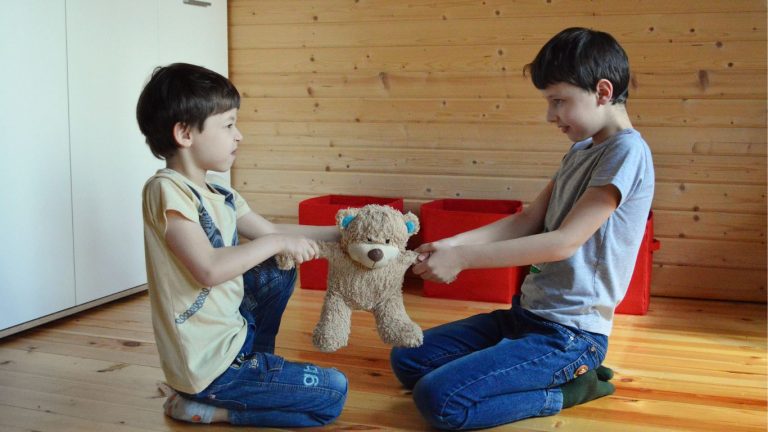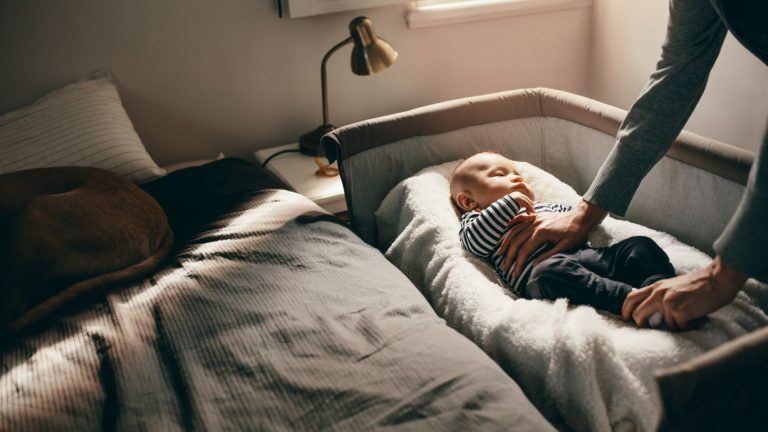Potty training can be a straightforward affair, or a tricky and complicated part of your child’s life – filling you with fear and dread.
Potty Training – easy or hard work?
There are many books out there on the subject and they will all have perfectly good advice in them. I have not read them all, or many to be honest, but I wonder how many of them (other than Gina Ford) will tell you that once you take the nappies off it can be over in a week.
Toilet training can be an all consuming affair, it can change the way you live your life for a while. It can be overwhelming.
How would it be for you if potty training was over and done with in a week?
The key to successful potty training in a week is down to preparation. It is months or at least weeks in advance but not at all labour intensive.
Firstly, let them go to the toilet with you sometimes. Let them see what you do and talk with them about it and through the process, don’t be embarrassed, it is all natural. Something like “Mummy is doing a wee now, then I will dry myself and then I will pull up my knickers, up, see?, then I will flush the toilet, ready?, flusshhhhhh, then I am going to wash my hands and dry them – there we are, all done.” as patronising as that sounds – you get the picture…
Around 18-24 months, if your child is regular with his bowel motions, make a commitment to putting him on the toilet to do it (as often as possible). There are seats you can get to make it more comfy for little butts. It is really convenient if your child’s natural urge to go happens to be first thing after breakfast or at bath time.
If it is not at a predictable time, then just make some time every day and celebrate the successes when they happen, number ones or twos.
As they begin to happen more frequently, increase the days you are offering them the opportunity – it is after all the opportunity to succeed and one less nappy to change!
The conversation around this would be something like “well done, you have pooed in the toilet, this is where mummy and daddy do it” then, on those occasions when they go in their nappy you could say “You know how to do this on the toilet, don’t you? can you tell me when you need to go? can you say ‘poo mummy’ when you need to do a poo?” They will at some point start to do this.
Keeping them amused.
To keep them on the loo longer than 30 seconds, read some books, do a little jig, sing some songs…. give it several minutes to let their body a chance to let go. I would not do it with a screaming unhappy child; this is counterproductive.
I used to do it at teeth brushing time for the morning ones, or is that twos?, and bath running time for the evening. I would chat away while the child was happy as larry doing their business. I would, of course, leave them to concentrate when required.
What this is doing without any pressure, is teaching your child what the toilet is for, and what those feelings are that are associated with needing to use it. This is at least half of the battle.
Something to think about when toilet training is that you will have a level of expectation to succeed, and so you should – otherwise what’s the point, right?, it is just that with that can come pressure. If the pressure is not there for a good long while (ie: nappies are on the rest of the time) your child, and you for that matter, will benefit and respond in positive ways.
Here are some tips:
Start the preparations at around 18-24 months. Let them begin to see that it is OK to “lose” a part of themselves by dropping the contents of their nappy down the loo on occasion, that it is normal and flushing away poo is not the end of the world. For some kids this is a real issue, pre-empt it.
Don’t bother getting rid of nappies unless they show all of the signs – an interest in toilet/potty/underpants, long periods of dryness, fairly regular bowels, uncomfortable in or aware of a dirty nappy, able to follow simple instructions.
Dedicate a whole week of staying at home to get it done… make other arrangements for the first 3-4 days and see how you get on, then venture out. Obviously dropping off/collecting kids from school is a necessary task, but try to create space for you and your child to be relaxed throughout the process. If you can’t avoid it, I highly recommend the Potette folding travel potty- it’s a brilliant invention. They are available at http://bathandpottytime.co.nz which has all your toilet training needs.
Give lots of water so that they need to go often, then there’s more chance of success. Ask them if they need to go frequently for the first few days, then back off a bit and see how they get on with acknowledging the signs themselves.
Buy underwear a size too big. They are easier to pull up and down. As are baggy elasticated trousers. (I don’t recommend nappy pants, they can’t feel the wet)
Proceed with caution with starting toilet training around any big emotional events with your child, a house move, new baby, serious illness or other upsets… if you do, expect that your toddler will regress and try not to be annoyed by this, remain firm but fair, create the feeling with your child that you support them, but that it is still expected that they continue as they have been (ie. doing well).
DO NOT flush with your child sitting on the toilet! It gives them a fright and will set you back phenomenally.
Don’t show anger, disappointment or upset around toilet training while the child is still in nappies, or the first 3-4 weeks of toilet training. Again, it gives them a fright and sets them back – this can be back into nappies and they won’t go anywhere near the toilet – even if they did previously use it happily.
If you use a potty, drop a couple of sheets of toilet paper in the bottom of the potty for number twos, it helps when putting it down the toilet.
I personally only start toilet training around 2-2.5 years. Summer is an ideal time – they can run about with nothing on. I particularly dislike using a potty, so I go straight for the toilet. But do what works best and is easiest for you.
Some useful articles and resources on toilet training
Find out more about toilet training for older children in Trouble with Potty Training and When Potty Training is not Working and help for children that just won’t go in Potty Training your Children. We also remove the stress with 10 Top Tips for Potty Training.
Try this toilet training method for quickly and easily potty training in as little as 3 days.
Books can help
There are literally hundreds of children’s books dedicated to the theme of potty training. You should be able to find some titles at your local library.
The following are some of the most popular potty training books you can buy online. Click on the images below for reader reviews:
Finding your child’s throne
Although some children won’t use a potty, and going straight to the toilet is the only option, we advise starting with a potty for most kids. You can check out a great range of potty types, with reader reviews, here:





